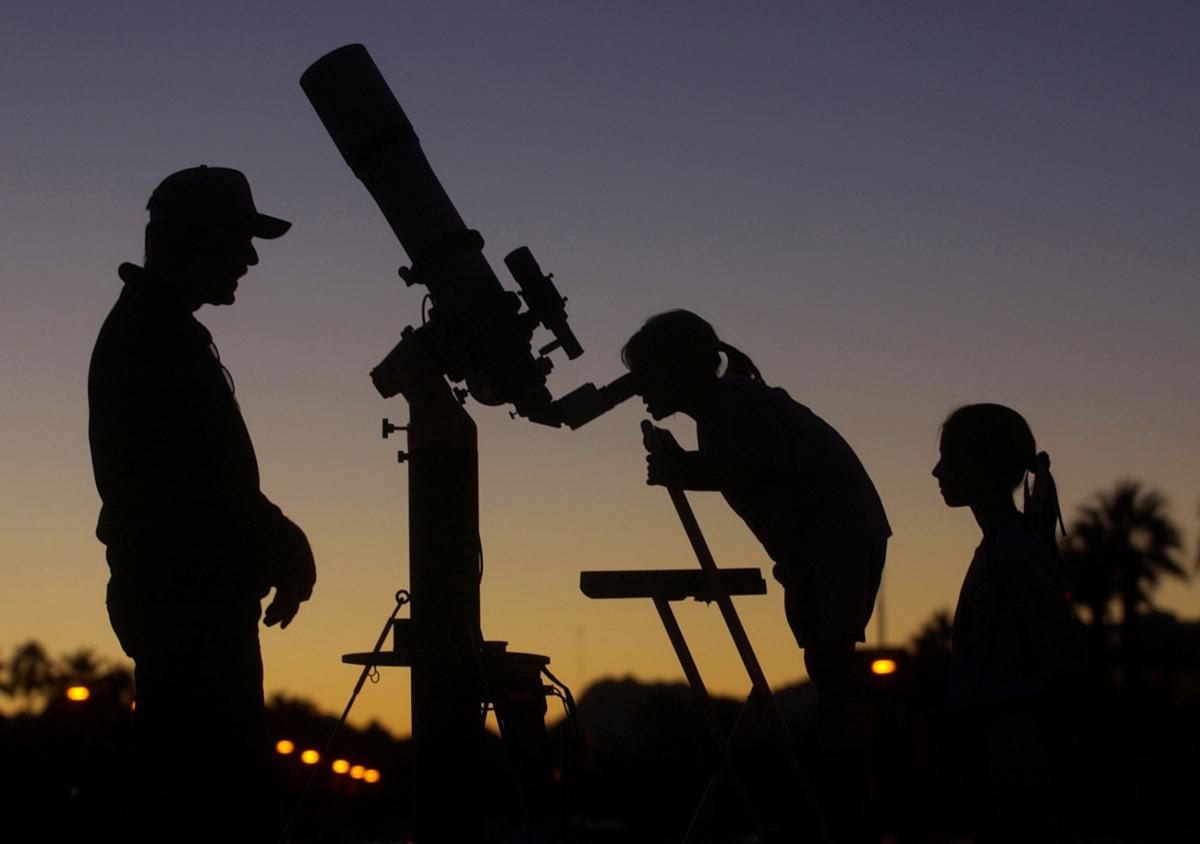Starry nights are a big deal here.
That's thanks to our weather and local dark sky ordinances — dark skies make for bright stars.
They don't call Tucson the astronomy capital of the world for nothing.
Several years ago, Thomas Fleming, a University of Arizona astronomer and senior lecturer, told us that the region has around two dozen professional-class telescopes with galaxies at their disposal. The number of astronomy organizations in town means we also likely have more professional astronomers than any other city in the world.
But you don't have to be a pro to admire the night sky. Either take a drive out of the city to get away from the light pollution and just look up or take advantage of local institutions sharing their telescopes. Here are six places to go stargazing.
Your backyard
You can check out a telescope from the Joel D. Valdez Main Library, 101 N. Stone Ave., or the Oro Valley Public Library, 1305 W. Naranja Drive, with your Pima County Public Library card. No joke. You can spot the moon, planets and distant celestial objects with 4.5-inch Orion StarBlast telescope. It's simple and compact and good for beginners.
The telescopes were a gift to the library from the Tucson Amateur Astronomy Association. You can check one out for three weeks.
Go here for more information.
Mount Lemmon SkyCenter
Although it's more of an investment than the free-to-use library telescopes, an evening on Mount Lemmon won't disappoint. The observatory's SkyNights Stargazing Program includes an astronomy lecture, light dinner and a chance to look through the enormous Schulman 32-inch and Phillips 24-inch telescopes. The five-hour program costs $50 for kids and $75 for adults. You need to make reservations in advance and be mindful that the program is dependent on clear skies — as in, maybe don't schedule during monsoon season.
Visit skycenter.arizona.edu for more information.
Catalina State Park
The Tucson Amateur Astronomy Association occasionally hosts star parties at the state park in Oro Valley (and all over Tucson, really. Check out their calendar for future events). There aren't any scheduled in the immediate future, but Catalina State Park is north of Tucson, so the skies are darker than what you would find in the city center.
Bonus: If you're willing to go further out of town, there are some great stargazing options in state parks about an hour from Tucson. Both Kartchner Caverns and Oracle state parks are International Dark Sky Parks, meaning you'll get great views of stars. Like Catalina State Park, both occasionally host public star parties. The next one is Saturday, June 8 at Oracle State Park.
Admission to state parks is $7 per vehicle or $3 for an individual or bicycle.
Visit azstateparks.com for more information.
Sky Bar
This Fourth Avenue bar has telescopes and astronomers on its patio every night. Grab a drink and explore the universe starting around 7:30 p.m. most nights. The bar's website also has a great list of upcoming astronomical events — like the full moon on June 17 or June Solstice on June 21.
Visit skybartucson.com for more information.
Flandrau Science Center and Planetarium
This planetarium and observatory, 1601 E. University Blvd., on the University of Arizona campus has a 16-inch telescope that is free for public viewing. The telescope is run by volunteer student astronomers, usually Thursday through Saturday, starting around 7:30 or 8 to 10 p.m., but call in advance to make sure it is open.
Call 621-4516 for more information or visit flandrau.org.
Kitt Peak National Observatory
About an hour south of Tucson, this observatory is in the Tohono O'odham Nation. The observatory has several stargazing and telescope programs but describes its Nightly Observing Program as "introductory" and "family-oriented." Much like SkyNights on Mount Lemmon, this four-hour program includes a light dinner and sunset viewing followed by a chance to use research-class telescopes. The program costs $50 online or $55 over the phone and is free for members of the Tohono O'odham Nation.
Visit kpno.noirlab.edu for more information.





